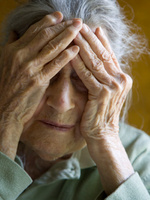OAPs hitting the bottle in retirement
 The UK's binge drinking youth has regularly hit the headlines over the last few years. However, there is a worrying trend amongst the older generation according to The Linwood Group, one of the UK's leading chain of alcohol treatment centres.
The UK's binge drinking youth has regularly hit the headlines over the last few years. However, there is a worrying trend amongst the older generation according to The Linwood Group, one of the UK's leading chain of alcohol treatment centres.Whilst their behaviour under the influence of alcohol does not immediately impact on society, Linwood is seeing increasing numbers of men and women in their 60s, 70s and, even, their 80s, coming in for alcohol detox and on-going treatment.
Director of Linwood and leading addiction therapist, Sue Allchurch, explains why she feels this is happening:
"Many people find retirement difficult to cope with. We grow up in a culture where work dominates everything and few are lucky enough to have a consuming passion or past-time to accompany them into retirement.
“Likewise, families these days are scattered across the country, even the world, so are not part of everyday life for many when they retire.
“Combine boredom, loneliness and the worry of getting older and you have the perfect formula for someone to turn to drink. Those people with a propensity towards alcoholism, which did not emerge during their working life, can find themselves progressing into dependency very quickly".
The Linwood Group lists these as tell-tale signs that drinking is becoming a problem:
Attitude
• Drinking is no longer for social reasons - it provides relief from problems, stress and inhibitions
• Drinking is to alter mood
• The amount being drunk is increased - even slightly - to heighten the buzz
• A person will stick to their usual choice of drink at this stage but increase the amounts consumed.
• A person might have a few drinks before going out or attending a social function to help with confidence.
• Social drinking increases to three to five units a day and a unit is over-estimated
Symptoms
• Increased tolerance to alcohol
• Lack of real recognition by the person to their change in drinking behaviour
• Drinking more regularly and in larger amounts
• Effort made to seek out more drinking opportunities
• View drink as an escape from circumstances
• Over-confident behaviour e.g being loud, boasting
Physical effects
• Occasional vomiting
• Occasional headache
• Occasional lapses in memory
• Occasional uncharacteristic behaviour
Sue Allchurch continues:
"It can be harder to spot some of these symptoms in older people as they can be confused with symptoms of general aging.
“We are also asked whether it matters so much if someone older becomes alcohol dependent - the truth is that drinking out of control can spiral out of control in a matter of months.
“The choice is then treatment or, inevitably, an early death through a drink-related disease or accident".
If you are worried about the amount either you, your partner, a relative or friend is drinking, visit Lynwodemanor.co.uk for further advice.

